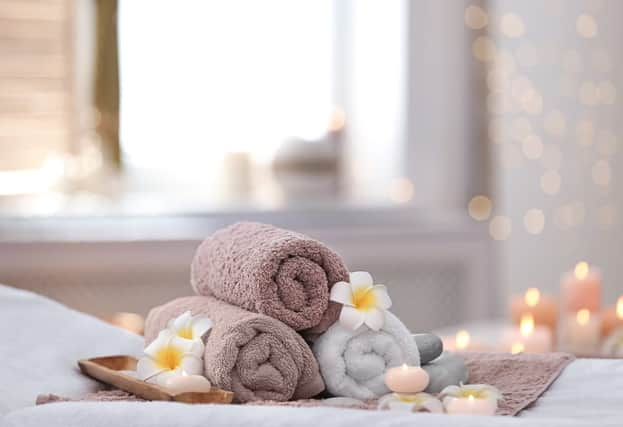Here's what to expect on your next spa visit or spa hotel stay
This article contains affiliate links. We may earn a small commission on items purchased through this article, but that does not affect our editorial judgement.


Spas look likely to be one of the last places to open when the lockdown restrictions ease. But what can customers expect from a usually relaxing experience?
Here, experts at Spa Seekers suggest 10 things guests may need to get used to or take into consideration when they can once again visit a spa or spa hotel.
Wellness surveys before attending
Advertisement
Hide AdAdvertisement
Hide AdDon’t be surprised if hotels ask you about your health history before you attend. It’s very likely that hotels will want to know if you’ve had any symptoms, are high risk, or have been exposed to somebody with coronavirus at any point in recent weeks. This is just to ensure that all guests and staff are kept as safe as possible to create the most relaxing experience possible.
Socially distanced check-in
You may be given a slot to check-in within to avoid too many people congregating in the same space.
More than likely, the check-in will be contactless, which could mean potentially seeing a rise in the number of hotels using self-service technology and apps to aid with check-in. This should mean you get through all the usual check-in processes quickly.
Do it yourself
To avoid unnecessarily touching surfaces, you may have to get used to a bit more DIY. So this means you’ll be taking your own bags to your rooms.
Advertisement
Hide AdAdvertisement
Hide AdWalking around the hotel may also look a little different from what you're used to. Spas will have reduced furniture, one-way routes marked out and staff in PPE.
72 hour gaps between rooms
A 72 hour wait per room could also be introduced so that after rigorous cleaning and additional measures such as changing duvets, the rooms will be sealed and no one allowed to enter until the next guest, ensuring cleanliness and peace of mind.
As well as this, having reduced occupancy at the hotel and spa means less chance of crossing paths. This means there is a lot more focus on the client and more space to safely relax.
Did somebody order room service?
You might be encouraged to order room service rather than use hotel restaurants, as a way to encourage guests to stay in their rooms to prevent cross-contamination.
Book yourself into the swimming pool
Advertisement
Hide AdAdvertisement
Hide AdSwimming pools, although chlorinated, will be closely monitored to ensure they are kept as hygienic as possible.
Guests may be asked to book a slot to ensure social distancing can be adhered to as much as possible.
When it comes to the use of swimming pools there will be single lanes between swimmers to allow for distancing.
With the Pool Water Treatment and Advisory Group suggesting that water and the chlorine in swimming pools will help kill the virus, it is personal hygiene and distance out of the pool that is imperative. Guests will have to shower before and after using the pool and rigorous cleaning schedules will be implemented in between booking slots with a focus on high touch points.
Your room is your hub
Advertisement
Hide AdAdvertisement
Hide AdWith your own room as a hub, your stay will be centred around your needs. The reduced occupancy of the hotel and spa will mean there is more focus on the client.
We could even see saunas being placed in rooms to bring luxury right to your door. This move towards spa stays means that hotels and spas can take further safety steps by making sure guests only use their own toilet, allowing cleanliness in public spaces to be controlled further.
New treatment trends
Jade rollers are everywhere on Instagram, and they're making their way into the treatment room too. New measures could see treatment trends moving forwards of wand and machine facials as well as more use of jade rollers rather than hands to avoid getting too close.
Face masks and visors on therapists
We're all used to seeing people in PPE, such as facemasks and gloves now, it's the 'new normal', and spa treatment rooms will be the same. Expect to see face shields, masks and gloves on therapists to ensure both their and your safety.
More non-invasive treatments
Advertisement
Hide AdAdvertisement
Hide AdWith social distancing in place, spa treatments will lean towards low touch therapies such as reiki, or even offer wellbeing sessions, such as yoga outside.
Although things may look very different, what hasn’t changed is the hotel and spas focus on helping customers mentally and physically relax.